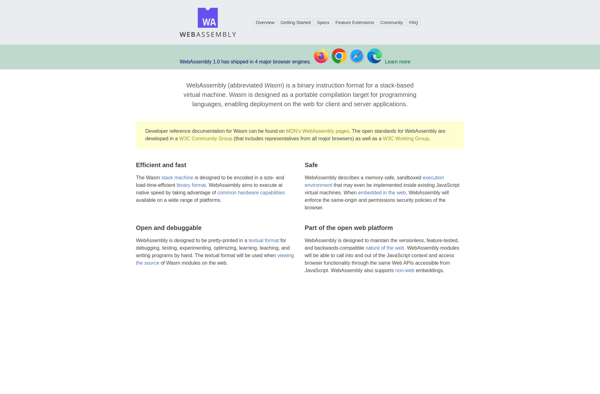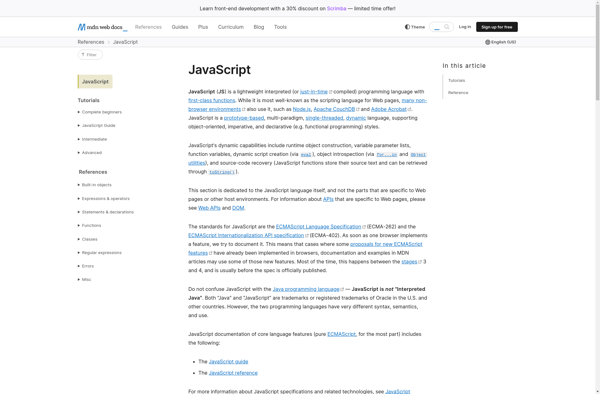WebAssembly

WebAssembly: Low-Level Assembly Language for Web Browsers
WebAssembly is a low-level assembly-like language that runs in web browsers. It allows developers to write code in languages like C/C++ and Rust and compile it to WebAssembly, which runs at near-native speed in the browser.
What is WebAssembly?
WebAssembly is a binary instruction format for the web. It allows developers to compile code written in languages like C/C++ and Rust into a binary format that can be executed in web browsers at near-native speed.
The key benefits of WebAssembly include:
- Performance - WebAssembly executes at near-native speed, much faster than JavaScript
- Portability - The same WebAssembly module can run across different browsers and platforms
- Security - WebAssembly executes in a safe, sandboxed environment inside the browser
- Compactness - The binary format of WebAssembly code is compact and fast to transmit
- Interoperability - WebAssembly integrates smoothly with JavaScript code and the web platform
WebAssembly modules can perform computationally intensive tasks like games, 3D rendering, video/audio editing, simulations, and machine learning right inside web browsers. This eliminates the need for external plugins or installations and enables a wide range of new web applications.
Major browsers like Chrome, Firefox, Safari and Edge now ship with built-in support for WebAssembly. It is being adopted in web frameworks and libraries as a compilation target alongside JavaScript. WebAssembly has the potential to become a cross-browser way to deliver high performance web applications.
WebAssembly Features
Features
- Runs at near-native speed in browsers
- Allows code to be compiled from languages like C/C++ and Rust to WebAssembly
- Provides a compilation target that can run in browsers, servers, and stand-alone
- Designed as a portable target for compilation of high-performance languages
Pricing
- Open Source
Pros
Cons
Official Links
Reviews & Ratings
Login to ReviewThe Best WebAssembly Alternatives
Top Development and Web Development and other similar apps like WebAssembly
JavaScript
